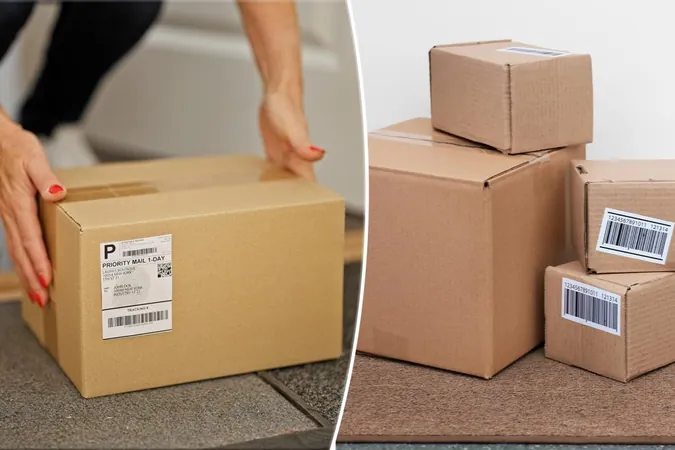
Received an Unexpected Package? Beware of the New “Brushing” Scam — Essential Tips to Stay Safe This Holiday Season!
2024-12-21
Author: Kai
As the holiday season approaches and gifts begin to pour in, the excitement can quickly turn to confusion — or even danger — if you receive a package you didn’t order. Experts are warning about a rising scam known as “brushing” that could put your personal information at risk.
Brushing typically involves cybercriminals sending out unrequested packages with no identifiable sender. The package may contain a QR code that tempts recipients to scan it to find out who sent the item. However, this seemingly innocent action can have serious consequences.
Scanning the QR code could unknowingly expose sensitive data from your smartphone or lead to the installation of malicious software on your device. The Federal Trade Commission (FTC) has cautioned that scam QR codes can redirect you to fake websites designed to look legitimate. If you enter any details on these sites, scammers could steal your personal information, making it an easy target for identity theft.
Law enforcement agencies across the nation are urging the public to be more aware during the holidays. Recent reports highlight cases like that of Nancy Kowalik from Mullica Hill, New Jersey, who received an attractive skincare gift set with an unknown sender. Although wary, Kowalik refrained from scanning the QR code, recalling the warnings she had seen.
The pandemic and the subsequent boom in online shopping have provided fertile ground for brushing scams. These scammers often use this technique not only to victimize individuals but also to artificially inflate the seller ratings on platforms like Amazon. According to Jennifer Leach, associate director of the FTC's Bureau of Consumer and Business Education, these unscrupulous individuals send unsolicited items, after which they write favorable reviews as if they were legitimate customers. This practice can undermine the credibility of honest businesses and skew consumers’ perceptions.
Leach also raised concerns that your account might be compromised if you're targeted by these scams. They could potentially set up a new account using your name and address, complicating matters further.
To protect yourself from such scams, experts recommend several precautions: 1. **Verify Packages:** If you receive a package without a known sender, resist the urge to scan QR codes or enter any information online. 2. **Secure Your Accounts:** Regularly check the security of your online shopping accounts, changing passwords frequently and enabling two-factor authentication when possible. 3. **Report Suspicious Packages:** Notify the relevant shopping sites about any unsolicited items. Companies like Amazon have policies prohibiting third-party vendors from sending unrequested items and take action against violators.
In a nutshell, stay vigilant this holiday season, and do not let your curiosity lead you into a trap. Protect your personal information and enjoy the festivities without falling prey to scammers looking to ruin your holiday cheer!



 Brasil (PT)
Brasil (PT)
 Canada (EN)
Canada (EN)
 Chile (ES)
Chile (ES)
 España (ES)
España (ES)
 France (FR)
France (FR)
 Hong Kong (EN)
Hong Kong (EN)
 Italia (IT)
Italia (IT)
 日本 (JA)
日本 (JA)
 Magyarország (HU)
Magyarország (HU)
 Norge (NO)
Norge (NO)
 Polska (PL)
Polska (PL)
 Schweiz (DE)
Schweiz (DE)
 Singapore (EN)
Singapore (EN)
 Sverige (SV)
Sverige (SV)
 Suomi (FI)
Suomi (FI)
 Türkiye (TR)
Türkiye (TR)